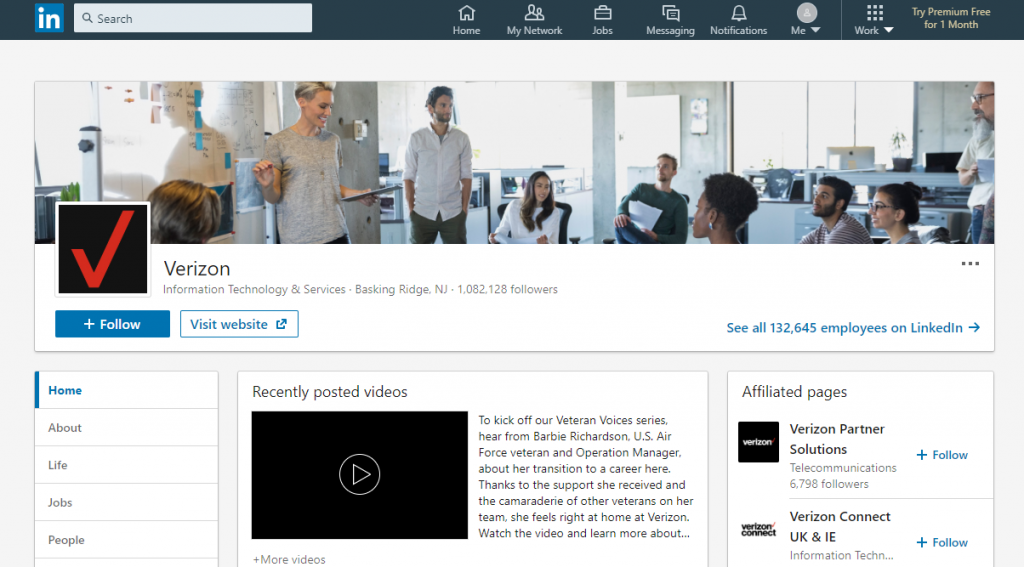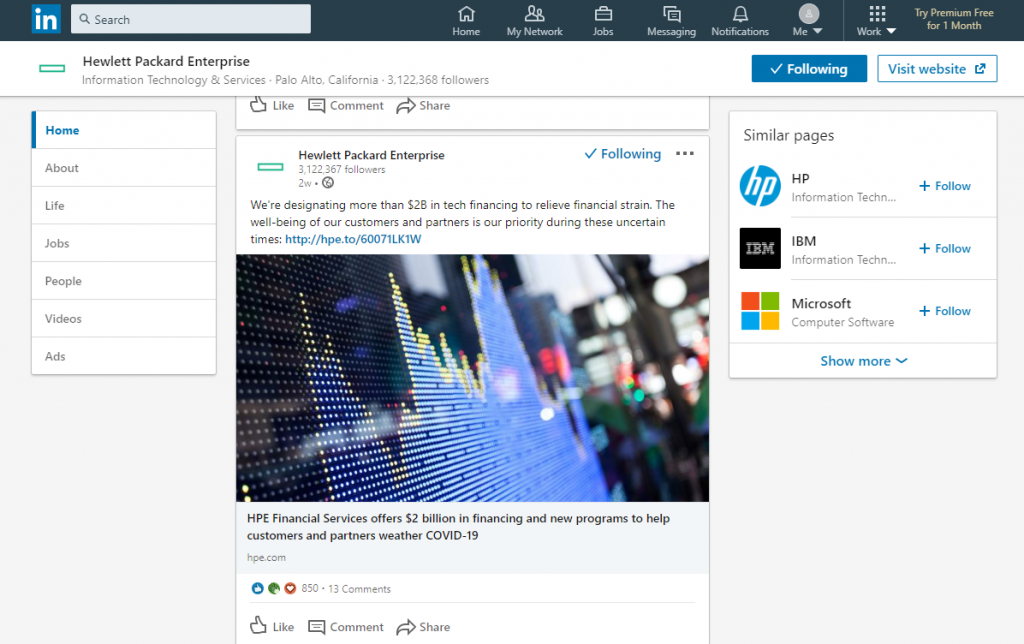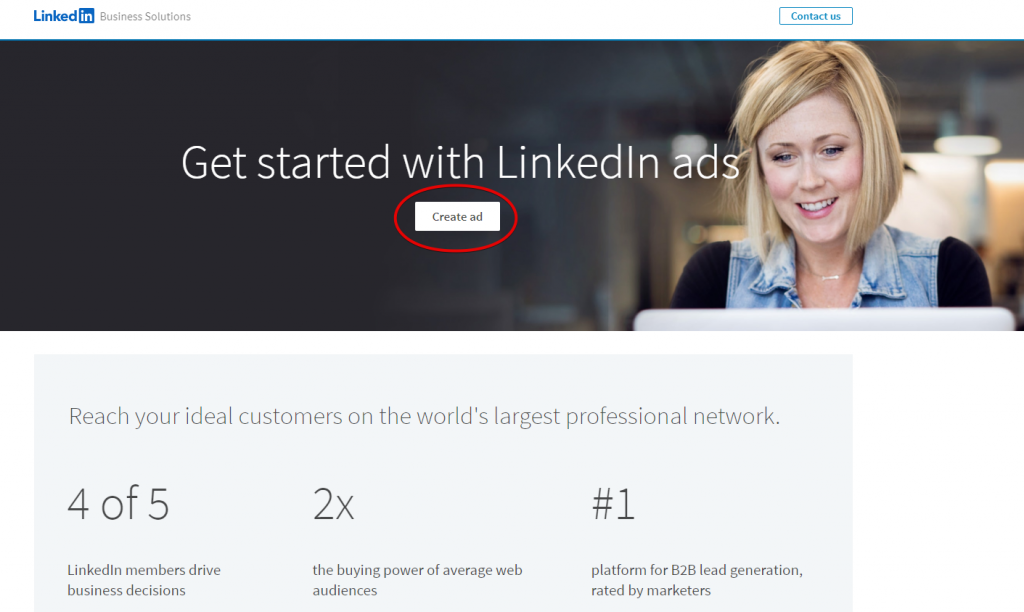LinkedIn is a favored social network for business. While it might not gain as much attention for business marketing as Facebook or Instagram, for instance, many firms have a presence on the platform. Just as importantly, many professionals and visionary thinkers also use the platform. It is particularly valued by those firms that operate in the B2B sector.
LinkedIn has more than 610 million members. Of these, 303 million are active monthly members, 40% of whom visit the site daily. Importantly for many businesses, 90 million senior-level influencers/thought leaders and 63 million decisionmakers use LinkedIn. 97% of B2B marketers use LinkedIn as a content distribution channel, and LinkedIn is responsible for 80% of B2B leads from social media.
LinkedIn is the social network of choice for senior-level executive, management, and thought leaders. Serious decisionmakers who couldn’t care less for Facebook statuses, Twitter tweets, YouTube videos, or Instagram images still often take an avid interest in thought-provoking posts shared on LinkedIn.
Therefore, most firms should have a presence on LinkedIn, including it as part of their overall online marketing strategy. Businesses that sell B2B, however, should ensure that LinkedIn is an integral part of their marketing strategy.
How the LinkedIn Algorithm Works
LinkedIn has been relatively open about how its algorithm works.
- An AI bot checks your content to ensure that it isn’t spam. If your content fails this test, it is unlikely to be served to many peoples’ feeds. Only share high-quality material on LinkedIn.
- Your post will be seeded to a trial audience. The algorithm will then examine the engagement of those initial people. If they show little interest in the post, then it is unlikely that LinkedIn will show your post to many more people.
- If your initial audience favored the post, giving it a reasonable number of likes and shares, then the LinkedIn algorithm will do further checks to ensure it isn’t spam, and that the results are credible for your audience network. They will widen the circle of accounts to whom they feed the post.
- Assuming your post is still performing well, human editors will eventually become involved. They will read the post and decide whether it merits boosting to a broader audience.
9 Tips to Crafting the Perfect LinkedIn Marketing Strategy:
- Define Your LinkedIn Marketing Goals
- Know Your Target Audience
- Perfect Your Company Page
- Promote Your Company Page
- Create and Share Useful Engaging Content
- Use Images and Other Media in Your Content
- Be Active in LinkedIn Groups
- Include LinkedIn Ads in Your Campaign
- Study Your LinkedIn Analytics
- Frequently Asked Questions
Define Your LinkedIn Marketing Goals
Marketing on LinkedIn is no different from any other social marketing. You need to begin each campaign by defining and setting your goals. You need to ask yourself why, precisely, are you undertaking this LinkedIn marketing campaign? What are you hoping to achieve from it?
You want your goals to be SMART – Specific, Measurable, Achievable, Realistic, and Timely. In particular, you need to ensure that you can use some suitable metrics to measure the success of your campaign.

Image via accademiapnl.com
Some common goals (expressed generally here, not fully SMART) include:
- Increasing your brand awareness (probably best measured using data on your LinkedIn Page analytics)
- Building leads (LinkedIn is after all the network where you are most likely to find potential business decisionmakers/customers)
- Engaging with your target audience (again you will find data on this in your LinkedIn Page analytics and less tangibly in your participation in LinkedIn Groups)
- Selling your product (perhaps less common on LinkedIn, but still possible indirectly)
Know Your Target Audience
One of the critical secrets to social marketing success is fully understanding the tastes and interests of your target audience. There is little point spending valuable funds and time marketing to people who will never have an interest in your product. You wouldn’t, for example, do much, if any, marketing on LinkedIn if you sell a product targeting teenagers who still attend school, for instance.
If your potential customers do spend time on LinkedIn, you will want to go into further detail describing their demographics.
You need to know the essential characteristics of the people likely to buy your product, ahead of the company for whom they work. You might sell B2B products, but it isn’t a business that makes up its mind whether to purchase your product – it will be some specific manager within each company. So, it is worthwhile asking yourself, which manager would make the decision, or even who is likely within a business to give recommendations on purchasing.
If you already have a reasonable LinkedIn company page, you can go to your analytics to give you a reasonable idea of the types of people taking an interest in your page. Are there any patterns in those who share and like your posts?
Perfect Your Company Page
Like many social networks, LinkedIn has two types of pages – personal pages where people list their past jobs and successes, and company pages. Once any manager or employee adds your business as a place of work, LinkedIn will create a company page for you. However, unless you add content and fill in the gaps, your company page will look uncared for and unclaimed.
An attractive, informative company page is essential for any business on LinkedIn. It will be one of the most likely places for your target audience to visit on LinkedIn. You should imagine it as being a virtual store, whether you sell items or just use LinkedIn to build brand recognition.
Your LinkedIn company page is a perfect place to narrate all the positive stories about your business. You can use it to highlight your team and any awards you have won. Ultimately, LinkedIn is a network about people, so you should use your LinkedIn company page to emphasize the public faces of your organization.
Anybody who wants to learn about your business on LinkedIn will make a point of searching for your company page. It is one of the most common ways that people research about your company – what you do, what you make, where your offices are, who your senior management and executive are.
You will want your LinkedIn company page to reflect all the branding you use elsewhere. It should include your official logo, your colors, your fonts, and links to your website URL. Think about the types of questions your potential customers would ask and preempt them by including the answers on your company page. As with all your online assets, you need to carefully consider the copy you use on your LinkedIn page, including relevant keywords in your text.
Make sure you continually update your company page, however. If you want to be considered a serious force on LinkedIn, you need to publish relevant, informative, interesting content regularly.
Promote Your Company Page
While the judicious use of keywords may help your company page appear in LinkedIn searches, you really need to give it a boost, if you want people to find your site. Otherwise, you may be limiting yourself to a mere one or two new visitors per month.
You should take the opportunity of promoting your page whenever you get the opportunity. This can be as simple as a linked LinkedIn logo on your webpage and other social accounts, encouraging people to follow you on LinkedIn. The more visible your LinkedIn page, the more successful you are likely to be on the platform.
Once somebody has followed your page, they will see your posts and updates in their feed, keeping you fresh in their mind.
You should begin this process by asking all your employees and managers to follow your company page; this will hopefully give you enough initial numbers to look respectable. You can add a link to your LinkedIn page in places such as your email signature and newsletters. Don’t forget to invite your existing customers to visit and follow your revamped LinkedIn company page.
Create and Share Useful Engaging Content
Like all social media, you need to be social on LinkedIn. You can’t consider it set-and-forget marketing. There is little point having people following your account if they receive nothing in return. They would gradually forget about you, adding you to many other followed-and-ignored accounts.
It is important to remember that LinkedIn is a more "grown-up" and serious social network than many of the others; it is probably not the ideal place to share your cat memes. However, it is a perfect site to create and share blog posts that will interest your target market. LinkedIn is particularly suited to Thought Leadership type articles, allowing you to demonstrate your expertise in your niche.
Although you can share links to posts you have uploaded to your existing blog, studies show that LinkedIn’s algorithm favors material published on the platform, rather than promoting links offsite.
LinkedIn allows you to create blog posts within the platform, leaving it. The LinkedIn Publishing Platform allows members to write, edit, and share articles on LinkedIn, although it is not yet available within their mobile app.
You don’t have to create original content for all your LinkedIn posts. You can share other articles that you come across that you feel will be of value to your target audience. Remember, the overall goal of your LinkedIn account is to be of use to your target market, and collating other people’s relevant content can achieve this as well as your original pieces.
Use Images and Other Media in Your Content
While LinkedIn is not as reliant on visual media as Instagram or YouTube, it is still important. A good visual will always lead to better engagement than a sea of text. However, you would normally add the image or text to a text-based article, rather than sharing it alone.
While the text is the meet of your shared post, you should use visual media to embellish it. In most cases, it will be the image or videos that attract someone’s attention and bring them in to read your article. If they like your overall post, they will hopefully follow your page.
LinkedIn now encourages you to upload videos directly to the platforms rather than sharing YouTube videos. If you are creating a post for the LinkedIn Publishing Platform, you can add multimedia anywhere within the article - images, videos, podcasts, slides, tweets, and others.
Be Active in LinkedIn Groups
Another way that you can appear social on LinkedIn is to participate in discussions on LinkedIn Groups. This is an excellent way to network with other business professionals. If you are selective about the groups you join, you should be able to focus on communicating with your target audience. You can search for suitable groups from within LinkedIn’s search bar.
You could even opt to create and moderate a group where you target your preferred audience. You will, of course, must spend time to keep the conversation going and make it worthwhile for people to participate.
Include LinkedIn Ads in Your Campaign
Like most social networks, you can boost your brand’s performance on LinkedIn by buying ads. LinkedIn has extensive targeting capabilities, so you can ensure that LinkedIn only delivers your ads to your preferred audience.
The ads you can buy include:
- Sponsored content – here, you pay to amplify the content you share. This means that your posts reach a much larger audience than you could achieve organically
- Text ads – PPC ads that appear on various LinkedIn pages, for example, the LinkedIn home page, profile pages, search results pages, and Group pages.
- Sponsored InMail – these allow you to send personalized messages to LinkedIn members – like email marketing but done within LinkedIn
Study Your LinkedIn Analytics
We mentioned that you should select goals for your LinkedIn marketing campaign that are SMART. One of these requirements is that your goals are Measurable. Therefore, you should take the time to check your progress towards meeting those goals.
In many cases, you will find the relevant data in LinkedIn Analytics for your company page. This will give you invaluable progress about the visitors to your page and how they have engaged with your content.
Frequently Asked Questions
What should I include on my LinkedIn company page?
An informative LinkedIn company page is key for any business. Whether your company sells items or simply uses LinkedIn to foster brand recognition, you should think of your LinkedIn company page as a virtual store. Here you can share positive stories about your company, share about the awards you have won or show off your team. In short, you should use it to highlight the public face of your business. You can also include answers to questions your target audience will most likely ask.
How do I promote my company on LinkedIn?
To promote your company page on LinkedIn, there are a few things that you can do in addition to using keywords. Firstly, ask all your managers and other employees to follow your LinkedIn company page. You can also extend this invitation to existing customers. Secondly, make sure that you add a link to your LinkedIn page in your email signature, on your website and other social accounts. Your company’s chances of being successful on the platform will increase if your LinkedIn page becomes more visible.
How does LinkedIn ads work?
You can buy ads on LinkedIn to improve the performance of your brand. The ads that you can buy include sponsored content, text ads and sponsored InMail. With Sponsored content, you will pay to amplify the content that you share so that your posts will reach a bigger audience. PPC ads appear on various LinkedIn pages like profile pages, search results pages and the home page of LinkedIn. Lastly, Sponsored InMail works like email marketing and allows you to send personalized messages to LinkedIn members.
Should I use images in the content that I share on LinkedIn?
LinkedIn does not rely that much on visual media like YouTube or Instagram, but images are still important. By including an image, you will always get better engagement. Instead of simply sharing an image, when you use LinkedIn you will be adding images to a text-based article. The text remains the chief part of your article and the image will be used to make it more interesting. Luckily, it is quite easy as you can add multimedia anywhere within your article.
What is the best content for LinkedIn?
LinkedIn is a more mature and serious platform compared to many of the other social media platforms. Here you can create and share blog posts that your target audience will find interesting. It is especially suited for articles about thought leadership that enable you to show your expertise in your market. You can share links to blog posts that you have uploaded to your own blog, but research has shown that posts published on the LinkedIn platform get better results.





